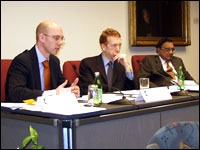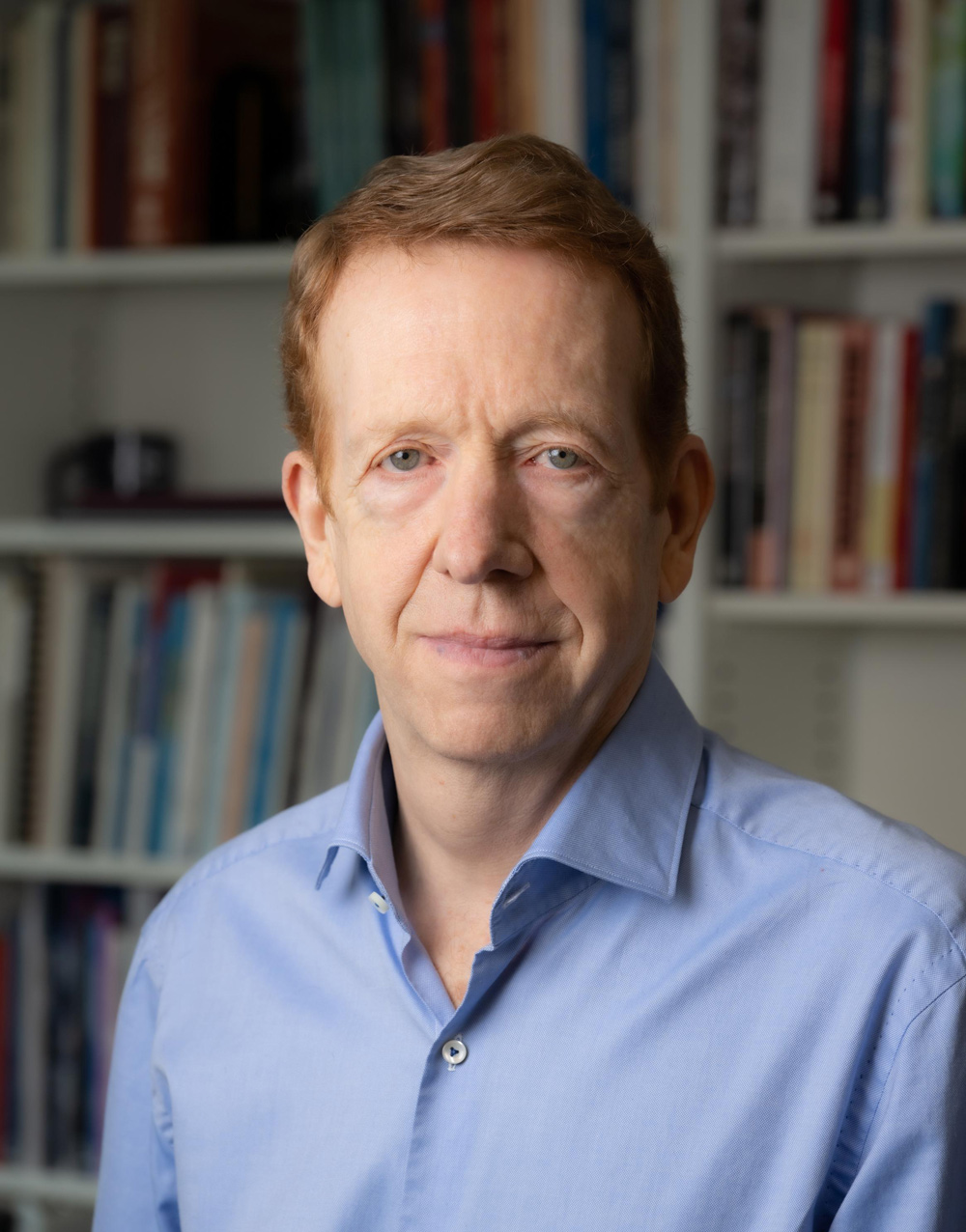{
"authors": [
"Jeroen de Zeeuw",
"Krishna Kumar",
"Thomas Carothers"
],
"type": "event",
"centerAffiliationAll": "dc",
"centers": [
"Carnegie Endowment for International Peace"
],
"collections": [],
"englishNewsletterAll": "",
"nonEnglishNewsletterAll": "",
"primaryCenter": "Carnegie Endowment for International Peace",
"programAffiliation": "DCG",
"programs": [
"Democracy, Conflict, and Governance"
],
"projects": [],
"regions": [
"North America",
"Middle East",
"China"
],
"topics": [
"Political Reform",
"Democracy"
]
}
Promoting Democracy in Postconflict Societies: What Role for International Actors?
Thu, November 9th, 2006
Presenters:
Jeroen de Zeeuw, Research Fellow, Conflict Research Unit, Netherlands Institute of International Relations
Krishna Kumar, Senior Social Scientist, Center for Development and Evaluation, USAID
Moderator:
Thomas Carothers, Vice President, Carnegie Endowment
IMGXYZ554IMGZYXCarnegie hosted Jeroen de Zeeuw and Krishna Kumar, who presented their new book, Promoting Democracy in Postconflict Societies. De Zeeuw opened the discussion by assessing three focus areas of postconflict democracy promotion: election assistance, human rights, and media development. Despite noticeable successes, challenges still persist: coordination between aid groups remains a problem in election assistance; the removal of foreign aid often undermines the sustainability of media reform; and democracy promoters continue to favor technical assistance over addressing pressing political issues.
Kumar stressed that promoting democracy and state building must coincide because democracy in a postconflict society demands a state with a viable civic administration that is able to ensure basic public services, especially security. Further, a tension exists between two prevalent expectations about democratization: while international democracy promoters focus on securing the rule of law and basic human rights, local populations ask what democracy will give them in terms of economic gain and political change. This indicates that paradigms for democracy assistance need revision.
During the subsequent question-answer period, Thomas Carothers asked if the varying challenges posed by different types of conflict undermine the usefulness of the category of postconflict society as a framework for developing new democracy promotion strategies. Participants raised issues concerning the role of internal and external actors, the fragility of postconflict societies, the challenges of defining long- and short-term goals, and the relationship between democratization and conflict resolution in countries where there is a history of militarized politics.
Summary prepared by Michael Grosack, junior fellow in the Democracy and Rule of Law Project.
Carnegie does not take institutional positions on public policy issues; the views represented herein are those of the author(s) and do not necessarily reflect the views of Carnegie, its staff, or its trustees.
Event Speakers
Jeroen de Zeeuw
Krishna Kumar
Thomas Carothers
Harvey V. Fineberg Chair for Democracy Studies; Director, Democracy, Conflict, and Governance Program

Thomas Carothers, director of the Carnegie Endowment for International Peace’s Democracy, Conflict, and Governance Program, is a leading expert on comparative democratization and international support for democracy.